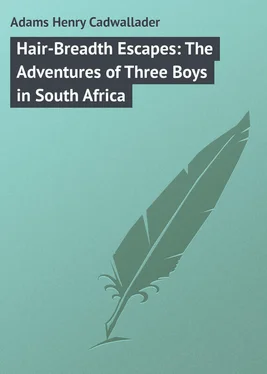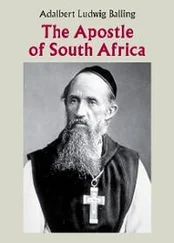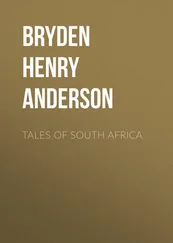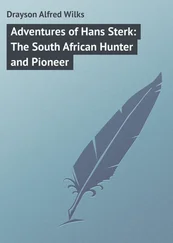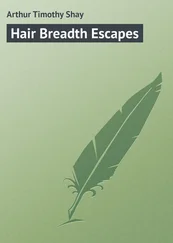Henry Adams - Hair-Breadth Escapes - The Adventures of Three Boys in South Africa
Здесь есть возможность читать онлайн «Henry Adams - Hair-Breadth Escapes - The Adventures of Three Boys in South Africa» — ознакомительный отрывок электронной книги совершенно бесплатно, а после прочтения отрывка купить полную версию. В некоторых случаях можно слушать аудио, скачать через торрент в формате fb2 и присутствует краткое содержание. Жанр: Прочие приключения, foreign_prose, на английском языке. Описание произведения, (предисловие) а так же отзывы посетителей доступны на портале библиотеки ЛибКат.
- Название:Hair-Breadth Escapes: The Adventures of Three Boys in South Africa
- Автор:
- Жанр:
- Год:неизвестен
- ISBN:нет данных
- Рейтинг книги:5 / 5. Голосов: 1
-
Избранное:Добавить в избранное
- Отзывы:
-
Ваша оценка:
- 100
- 1
- 2
- 3
- 4
- 5
Hair-Breadth Escapes: The Adventures of Three Boys in South Africa: краткое содержание, описание и аннотация
Предлагаем к чтению аннотацию, описание, краткое содержание или предисловие (зависит от того, что написал сам автор книги «Hair-Breadth Escapes: The Adventures of Three Boys in South Africa»). Если вы не нашли необходимую информацию о книге — напишите в комментариях, мы постараемся отыскать её.
Hair-Breadth Escapes: The Adventures of Three Boys in South Africa — читать онлайн ознакомительный отрывок
Ниже представлен текст книги, разбитый по страницам. Система сохранения места последней прочитанной страницы, позволяет с удобством читать онлайн бесплатно книгу «Hair-Breadth Escapes: The Adventures of Three Boys in South Africa», без необходимости каждый раз заново искать на чём Вы остановились. Поставьте закладку, и сможете в любой момент перейти на страницу, на которой закончили чтение.
Интервал:
Закладка:
“ You would do well to take care,” retorted Warley. “Do you see what was crawling up your leg?” He held up, as he spoke, a dead snake about eighteen inches long, with a curious-looking horn on either side of its head. “If I hadn’t hit him on the neck the moment I saw him, he’d have bitten your hand to a certainty. He was making straight for it.”
“A snake!” cried Nick, starting up in horror. “So there is, I declare. The nasty brute! I don’t know whether it is venomous or not, but I’m much obliged, even if it isn’t. They are not nice things up a fellow’s leg!”
“Hand him over here,” said Charles Lavie. “Oh ay, I know this fellow. He is called the cerastes, and is venomous, I believe, though not one of the worst kinds of poisonous snakes. You are well out of it, Nick, I can tell you, and must look more carefully about you in this country before you sit down in a place like this. Some of the reptiles are so nearly the colour of the ground, or the trees, that even an old stager may be taken in.”
“Are there any large pythons in these parts?” asked Warley. “I’ve heard two quite different accounts. One says that they are never found so far south as this; the other, that they are to be met with thirty or forty feet long, and as thick round as a stout man. What is the truth of the matter?”
“Well, the truth is something between the two, I believe, as is generally the case,” said the surgeon. “They are certainly not common in Southern Africa, since people who have lived here all their lives have never seen one. But now and then they are to be met with. I know persons who have seen serpents’ skins thirty feet long in the possession of natives; and one case I heard of, in which a skin was exhibited fully ten feet longer than that.”
“Are they difficult to kill?” asked Frank.
“Not if you bide your time,” said Lavie. “If you come upon them when they are hungry, they – the larger ones, that is – are more than a match for even the strongest men: and unless they are approached unawares, and wounded, so as to destroy their muscular power, a struggle with them would be most dangerous. But after they have gorged their prey, they are killed as easily as so many sheep – more easily in fact, for they are quite torpid.”
“What are the worst snakes found in these parts?” inquired Gilbert. “The cobra and the puff adder, I should say,” returned the surgeon. “The first will spring at you as if it was discharged out of some engine, and with such force, that if it fails to strike its mark it will overshoot the spot by several feet. The natives call it the hair-serpent, and are in great terror of it. If no sufficient remedy is applied, its bite will cause death in less than an hour.”
“ Is there any sufficient remedy?” rejoined Nick. “I thought there was no cure.”
“It’s not so bad as that, Nick. There are remedies for most bites – the cobra’s for instance. There is a root which the mangoust always eats, when it feels itself bitten by a cobra, and which is, so far as is known, a complete cure. Eau de luce and sweet milk are generally given in this country for a snake’s bite, and the natives have beans and serpent stones, which, it is said, effect a cure. But the best thing to do – what I should have done in your case, Nick, if you had been bitten – is, first to fasten a ligature as tight as possible above the wounded part, and then cauterise or cut away the injured flesh. Snakes’ bites are nasty things in these hot countries, and one can’t be too careful. But come, it is time we move on again. We ought to reach the river banks early in the afternoon.”
They recommenced their march accordingly, and had proceeded half a mile or so further, when Frank suddenly called upon them to stop.
“What can that noise be?” he said. “I have heard it two or three times in the course of the last few minutes. It doesn’t sound like the cry of a bird, or beast either. And yet I suppose it must be.”
“I didn’t hear anything,” said Gilbert. “Nor I,” added Warley. “But my hearing is not nearly as good as Frank’s. I’ve often noticed that.”
“Let us stop and listen,” suggested Charles.
They all stood still, intently listening. Presently a faint sound was wafted to them, apparently from a great distance – from the edge of the sandy desert, they fancied, which was still visible beyond the wooded tracts.
“No,” said Charles, when the sound had been twice repeated, “that is not the cry of any animal, with which I am acquainted. It sounds more like a human voice than anything else. If it was at all likely that there was any other party of travellers in these parts, I should think they were hailing us. But nothing can be more improbable than that.”
“Still it is possible,” urged Warley, “and they may be in want of our help. Ought we not to go and find out the truth?”
“I think you are right, Ernest,” said Frank.
“Well, I don’t know,” urged Gilbert, nervously. “I’ve heard all sorts of stories of voices being heard in the deserts, enticing people to their destruction, and it may be some ruse of the savages about here, who want to get us into their hands, to possess themselves of our guns. What do you say, doctor?”
“Why, as for the voices, Nick, I’ve heard the stories you speak of, which have been told chiefly by persons who had lost their way and were nearly dead from cold and hunger. Under such circumstances, when people’s nerves and senses begin to fail them, they fancy all sorts of strange things. No doubt, too, there are all sorts of acoustic deceptions in these wild regions, as there are optical delusions; but I don’t think we four – all of us in sound health – are likely to be so deceived – ”
“But how about the savages, doctor?” interposed Nick, anxiously.
“Well, if these were the backwoods of America, and we had the Red Indians to deal with, there would be a good deal in your suggestion. But neither the Hottentots nor the Bushmen are given to stratagems of this kind. However, we’ll move warily, and if any treachery is designed, we shall be pretty sure to baffle it.”
They turned off in the direction whence the cry had come, keeping to the open ground, and giving a wide berth to any clump of trees or underwood which might harbour an enemy. Every now and then they paused to listen for the sound, which was regularly repeated, at intervals apparently of two or three minutes, and grew more distinct as they advanced. It was now certain that the cry was human, and sounded like that of a full-grown man.
“We are getting a good deal nearer,” observed Warley, as they passed the last patch of trees, and entered once more the sandy wilderness. “I should say we must be almost close, only I don’t see any place where the person who is crying out in this manner can be hidden.”
“It comes from that heap of stones there,” exclaimed Frank, “that heap to the left, I mean – about two hundred yards further on.”
“I see the stones, Frank, plain enough,” said Mr Lavie, “but a man couldn’t be hidden among them. You call it a heap of stones, but there is no heap. There is not so much as one lying upon another.”
“Nevertheless the cry comes from there,” said Warley; “I heard it the last time quite plainly. Let us go up and see.”
They cautiously approached the spot in question, where there were about thirty or forty moderate-sized stones scattered on the plain. As they advanced the mysterious call was again heard.
“I see who it is that’s making it,” shouted Wilmore. “It’s a fellow whose head is just above ground. I took his head for a black stone, with a lot of moss growing on it. But now I can see that it is a head, though the features are turned away from us.”
Читать дальшеИнтервал:
Закладка:
Похожие книги на «Hair-Breadth Escapes: The Adventures of Three Boys in South Africa»
Представляем Вашему вниманию похожие книги на «Hair-Breadth Escapes: The Adventures of Three Boys in South Africa» списком для выбора. Мы отобрали схожую по названию и смыслу литературу в надежде предоставить читателям больше вариантов отыскать новые, интересные, ещё непрочитанные произведения.
Обсуждение, отзывы о книге «Hair-Breadth Escapes: The Adventures of Three Boys in South Africa» и просто собственные мнения читателей. Оставьте ваши комментарии, напишите, что Вы думаете о произведении, его смысле или главных героях. Укажите что конкретно понравилось, а что нет, и почему Вы так считаете.
